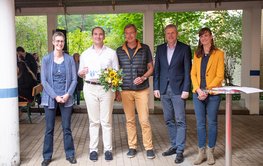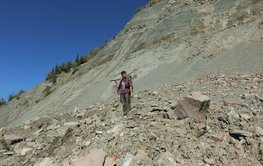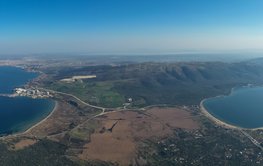35 of 197 coastal structures examined on the barrier islands off Miami sank by up to eight centimetres in 2016-2023 – presumably due to the compaction of sand layers in the underground.
You are a journalist and would like to receive our press releases via E-Mail?
Please send us a message
The aim of her ERC Consolidator Grant project EXCURSION: The first data-based model of the Earth's magnetic field over the last 780,000 years, focussing on periods of magnetic weakness.
New genetic methods can differentiate between the DNA of living and dead microorganisms. This enables deciphering the diversity of life and its processes under extreme conditions.
In the EU project GERACLE, an international team coordinated by the GFZ will investigate consequences of polarity reversals in the Earth's magnetic field. 3.3 of 10 mio euros will go to the GFZ.
The GFZ awards its highest honour to geophysicist and drilling expert from Stanford University, USA
On the day of bulding culture, join our guided tours at GeoBioLab: How to investigate microbial processes underground? How can computer power heat laboratories? How does sustainable building work?
The GFZ Friends Award honours Smirnov's dissertation on the dynamics of near-Earth space, completed in GFZ section ‘Space Physics and Space Weather’, as the best doctoral thesis of 2023.
With the prestigious EU funding of 1.5 million euros, he will conduct research into past ecosystems and the development of the carbon cycle and complex life in the GFZ section “Organic Geochemistry”.
Data assimilation, a principle known from weather forecasting, can – based on satellite data – significantly improve the prediction of particle dynamics in the electron ring current around the Earth
Borehole-based station at the Sea of Marmara will record an entire range of deformation processes, from slow aseismic creep to classic earthquakes as well as pore fluid pressure data.






![[Translate to English:] Gruppenbild mit 4 Personen](/fileadmin/_processed_/8/d/csm_20241017_GFZ-Emmerman-Medal-005_web_reinhardtundsommer_e6f00dc0df.jpeg)




